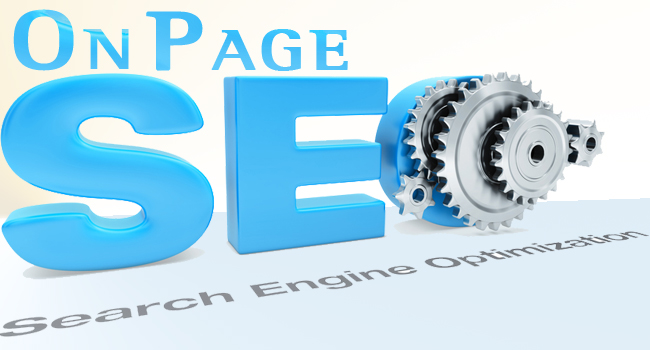This is one of the best ways to build traffic for your website. In This Just We Need To submit our article links to Social Bookmarking sites like Reddit, StumbleUpon, Diigo, and Scoop. it, etc.
Social Bookmarking is yet another powerful way of promoting your website, but nowadays most people are spamming social bookmarking sites without knowing how to use them. Since content in these websites updates frequently, search engines like these types of sites and often visit them (this is commonly termed as Tagsonomy & Folksonomy in Web 2.0). Do some social bookmarking in popular bookmarking sites like Digg, Delicious, StumbleUpon, Propeller, etc. You should be very careful while doing this and you must properly handle the tags which are very essential to broadcast your news on a wide area network. This may increase your website traffic based on how effectively you have participated.
6). Link Exchange
Exchange links with service-related websites (this is commonly termed as Thematic Link Exchange) that can help increase your link popularity, which is a major factor of Google's Page Rank algorithm. Beware of Black-Hats while doing exchanges.
7). Link Baiting
Link Baiting is another popular way of promoting your site. if you have copied/published another website’s content in your website then don’t forget to place their site link in your content as a reference. if your content is trustworthy, and others will copy and give you a link then This is another good way to increase your link popularity.
Suppose you have copied/published another website's news or content in your blog/website. Don't forget to place their website link as a reference. Do it for others and, if your content is trustworthy, let others do it for you. This is another way to increase your link
8). Cross-Linking

Link to internal pages within your site wherever necessary (this is commonly termed Internal Linking). This increases your internal link popularity, which is another major factor of the Google Page Rank algorithm. The best-known example of successful internal linking is Wikipedia. Also, try to get a content link from websites/blogs that are related to your site theme. Try getting a link from within their site content using a targeted keyword as anchor text (much like Wikipedia does). We know that this strategy can often be hard to implement, but these types of links have more weight from a search engine point of view.
9). Photo Sharing
Publish/share your website product pictures and make them public. Let your friends see them and comment on them too, which will help drive traffic toward your website. Do this on major photo-sharing websites like Flickr, Picasa, Photo Bucket, Picli, etc.
10). Video Promotions
Video Promotions is the best off-page Technique. Just Make a Video Related to Your Product and share/publish that video on YouTube, Metacafe, etc. So throw you can get a Link and Also Get Some Traffic.

Like with photo sharing, you can publish/share your product videos, expert opinions, and reviews of your product and make them public on YouTube, Metacafe, Dailymotion, etc.
11). Business Reviews
Write reviews about other businesses or ask your friends/clients to write a review of your business on major business review sites like Rateit All, Shvoong, Kaboodle, Stylefeeder, etc.
12). Local Listings & Yellow Pages
Instead of going global and facing huge competition, make your website local so that search engines can easily view your website and fetch the content. This will help you to reach a targeted audience. Submit your website to Google Local, Maps, Yahoo Local, Yellow Pages, Superpages, Hotfrog, etc.
13). Article Submission
Write articles of your own and submit them to popular article sites like Ezine, Go Articles, Now Public, Buzzle, etc. This will help you to attain some deep links for your website (though it's usually a slower process).
14). Press Release Promotion
If you are a business/service provider then go for PR submission in popular PR websites like 1888pressrelease, Open PR, PR Leap, etc. This will help you to publish your site in Google News.
15). Classifieds Submission
Do some classifieds submissions to advertise your products for free. Try Craigslist and other major classifieds sites like Kugli, Myspace, iMadespace, Vivastreet, etc.
16). Social Shopping Network
If you own an e-commerce website, this is a good strategy for advertising and easily branding your products for free. Submit your products to Google Product Search, Yahoo Online Shopping, MSN Online Shopping, and other major social shopping network sites like Kaboodle, Style Feeder, Wists, Five Limes, Buzz Shout, Ohmybuzz, etc.
17). Answers
Participate in Answers by asking and answering relevant questions and placing a link to your website in the source section if necessary. If you don't spam, this is another great way to increase your link popularity (Yahoo Answers, Cha-Cha, Answer Bag, etc.)
18). Document Sharing
Share your website documents like business documents, information brochures, and slides in Google Docs, Slide Share, etc. This will help you brand your website.
19) CSS, W3C & RSS Directories Submission
If you have a web design site or offer services related to web design, submit your website to CSS and W3C website directories which may drive traffic toward your website. Also submit your website to RSS feed directories which, again, will help you attain more traffic.
20). Widget / Gadget Development
Develop some interactive and innovative widget/gadget applications (such as an online poll or game widgets) for your website and publish them on your blog/website or on other popular social networking sites like Facebook and Myspace. Let your friends and others vote/play/use the widget/application, which will help you increase your branding and website visits.
Note: Always keep in mind that you have to be very careful while implementing these Techniques. You should not spam or overdo it. Whatever you do, just plan and execute. Otherwise, you can see adverse effects.
Hope You Like this Off-Page SEO Technique Friends. So Just Follow Our Tricks of Offpage Seo and Improve Your Site Ranking …
Here are the most effective Off-Page SEO tricks to improve your site's ranking, authority, and visibility in search engines:
🚀 Top Off-Page SEO Tricks to Boost Your Rankings
1. High-Quality Backlink Building
2. Social Media Signals
-
Share content across platforms (Facebook, LinkedIn, Twitter, Instagram).
-
Increased visibility → more shares → potential backlinks.
-
Optimize posts with hashtags, CTAs, and engaging visuals.
3. Local SEO & Google Business Profile
-
Claim and optimize your Google Business Profile (formerly GMB).
-
Add:
-
Accurate NAP (Name, Address, Phone)
-
Reviews
-
Business categories & photos
-
Get listed in local directories (Justdial, Sulekha, IndiaMART, etc.)
4. Social Bookmarking
5. Influencer Outreach
-
Connect with influencers/bloggers in your niche.
-
Ask for shares, mentions, or collaborative content.
-
Builds traffic and reputation.
6. Forum Participation
-
Join niche-relevant forums (Quora, Reddit, niche-specific forums).
-
Provide value and include links to your site only where relevant.
7. Blog Commenting
-
Comment thoughtfully on blogs in your industry.
-
Builds relationships and can drive niche-relevant traffic.
-
Avoid spammy, generic comments—be insightful.
8. Directory Submission (High-Quality Only)
9. Press Releases & PR
-
Write and distribute press releases to announce launches, events, or partnerships.
-
Use platforms like PR Newswire or online PR agencies.
-
Can generate high-authority backlinks and brand mentions.
10. Brand Mentions (Without Links)
-
Even unlinked brand mentions can be a ranking signal.
-
Use tools like Google Alerts or Mention.com to track your brand.
-
Reach out to sites to turn mentions into backlinks.
📈 How These Techniques Improve Rankings
| Technique | Benefit |
|---|
| Backlinks | Direct ranking factor |
| Social sharing | Increases visibility & traffic |
| Reviews/Local SEO | Better local rankings |
| Forums & comments | Builds authority and relevance |
| PR & outreach | Earns high-quality backlinks |
Would you like:
-
A custom Off-Page SEO strategy for your website?
-
A list of high-DA sites for backlinks or guest posting?
-
A backlink audit of your current site?
Let me know how you'd like to proceed!














